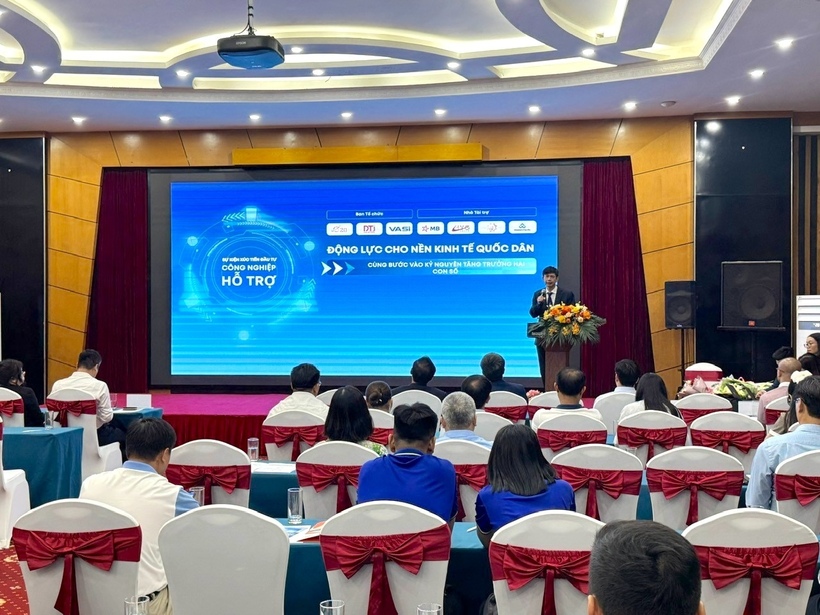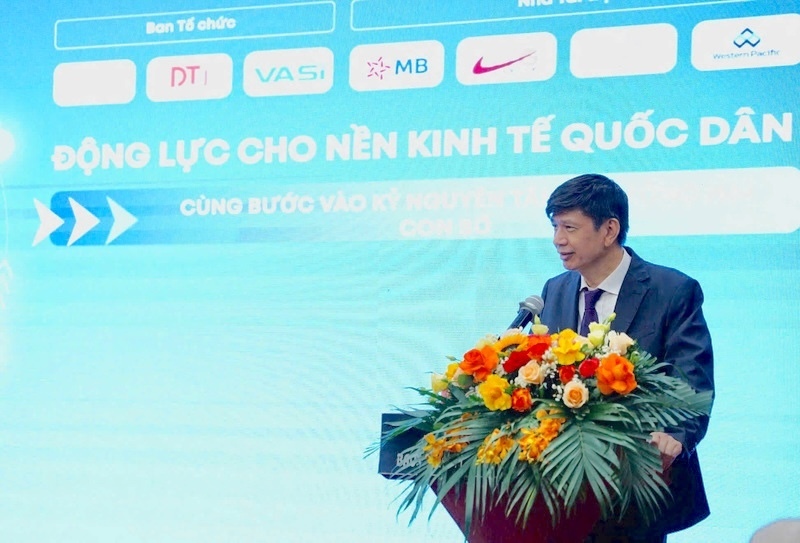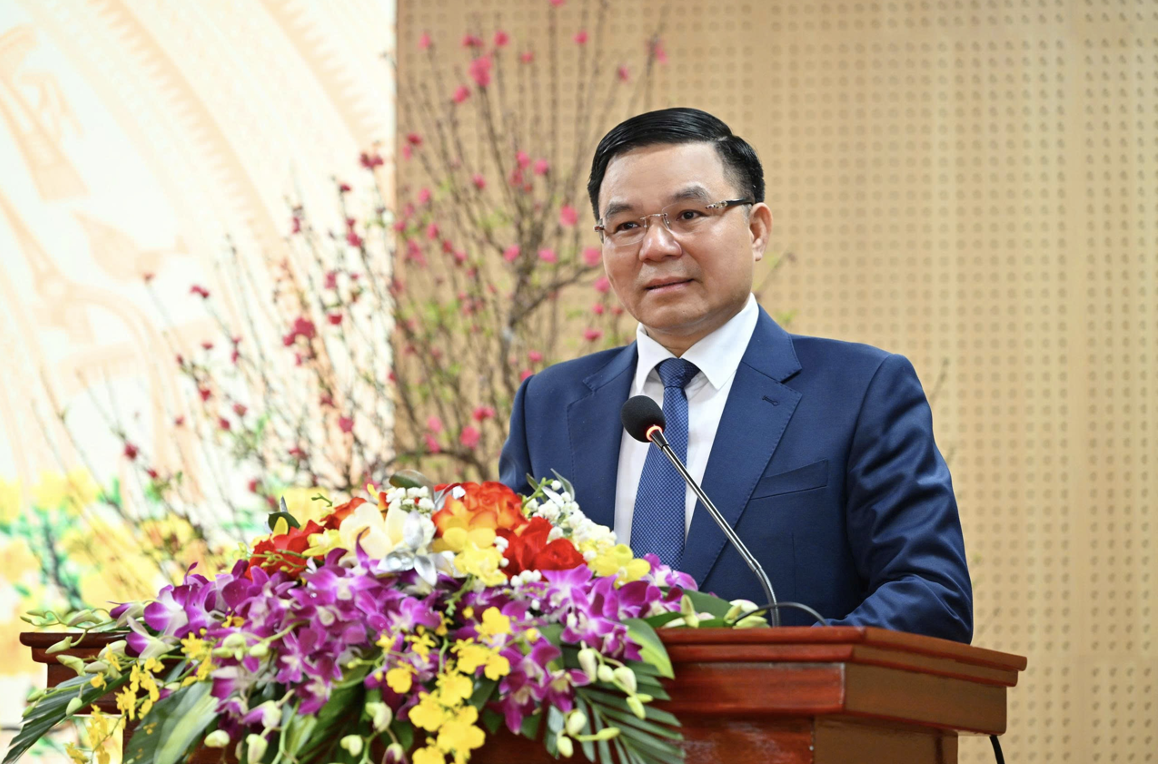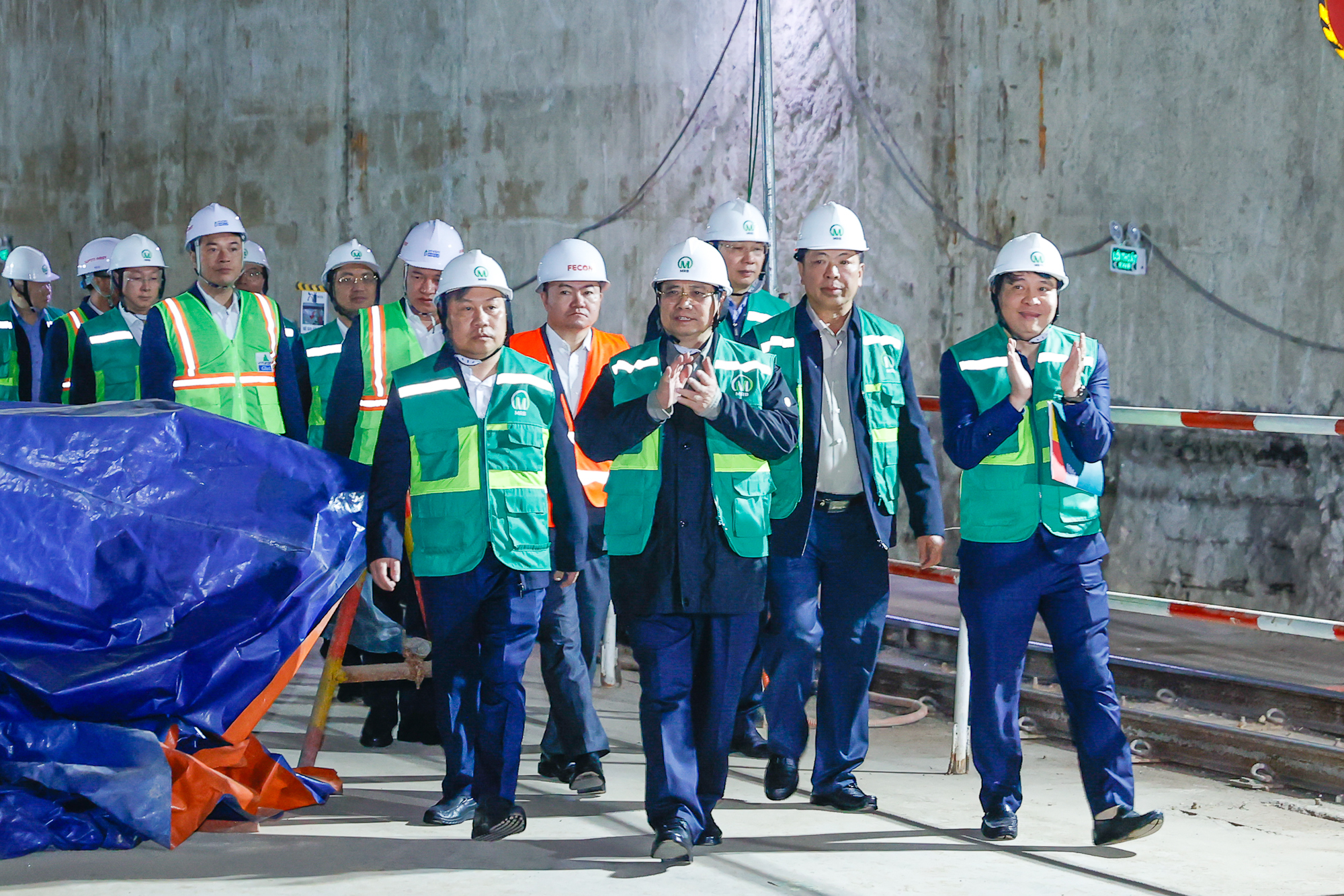
Vietnam’s fruit and vegetable exports to EU triple in four years
19:05 | 23/03/2025 20:40 | 23/02/2026Trade
Coordinated solutions for breakthroughs
On September 10, an event was held in Hanoi, aiming to promote investment in supporting industries in 2025. Jointly organized by the Vietnam Industrial Real Estate Association and the Vietnam Association for Supporting Industries, the event brought together representatives from the Ministry of Industry and Trade’s Industry Agency, economists, industry associations, financial institutions, and a large community of businesses and investors.
Speaking at the event, Nguyen Quoc Khanh, Chairman of DTJ Group and a member of the Executive Committee of the Vietnam Industrial Real Estate Association, emphasized that supporting industries are not merely about production but form the foundation of Vietnam’s industrialization process. They are also key to enabling self-reliance and deeper participation in global value chains.

An overview of the 2025 Supporting Industry Investment Promotion event
Professor Phan Dang Tuat, Chairman of the Vietnam Association for Supporting Industries, stressed that Vietnam must define supporting industries as a pillar of the national economy in order to enter a new era of growth. Supporting industries, he said, are not simply “supportive,” but a driving force behind the sustainable development of core sectors such as electronics, automobiles, textiles and garments, leather and footwear, and heavy industry, helping Vietnam climb the global industrial ladder.
From a planning perspective, Mr. Le Minh Son, a representative of DTJ Industrial, underlined the need for synchronized planning of strategic industrial parks. Such planning, he noted, will make Vietnam an attractive destination for international investors while creating opportunities for domestic firms to integrate more deeply into global supply chains.
Experts not only reaffirmed the pivotal role of supporting industries in fostering the national economy’s sustainable development, but also highlighted the importance of synchronized solutions to realize this role.
Experts agreed that supporting industries can only make breakthroughs through a coordinated approach that combines infrastructure planning, capital policies, transparent legal frameworks, and ecosystem-based development models.
Le Minh Son emphasized that the synchronized planning of strategic industrial zones is the foundation for Vietnam to become an attractive destination for international capital flows. Smart planning and modern infrastructure not only create favorable conditions for foreign investors but, more importantly, also open opportunities for domestic enterprises to move deeper into global value chains instead of remaining at simple processing and assembly stages.
At the financial level, Le Trong Duong, Project Development Manager at MBBank Giai Phong, pointed out that capital remains the biggest barrier for many supporting industry enterprises, especially small- and medium-sized firms, to implement production plans. He called for preferential credit packages and flexible lending mechanisms to support businesses from the stage of infrastructure investment to factory operations. These, he noted, could serve as a much-needed boost to unlock capital constraints and accelerate sectoral growth.
Legal clarity: A shield for businesses
On the legal front, lawyer Truong Anh Tuan, Head of the Legal Department of the Vietnam National Real Estate Association, highlighted the need for transparent, stable, and predictable legal frameworks. Clear tax incentives and well-defined investment cooperation models, he said, act as a “shield” to protect businesses while encouraging stronger participation from both domestic and foreign enterprises.

Nguyen Quoc Khanh, Chairman of DTJ Group, speaks at the event
Also at the event, Tran Anh Vuong, CEO of Western Pacific Group, introduced a strategic vision through the Logistics Industrial Cluster (LIC) model. By closely linking logistics, industrial production and trade, this model reduces costs, enhances competitiveness, and creates an ecosystem where supporting industry enterprises can cooperate, scale up, and expand to international markets.
The solutions discussed at the event were not stand-alone, but complementary, forming a comprehensive picture. Once infrastructure, capital, legal frameworks, and development strategies are aligned, Vietnam’s supporting industries will have the conditions needed to break out of their “low ground” and assert themselves as a pillar of the national economy while advancing into global value chains.
Experts concluded that the event underscored how supporting industries are no longer just auxiliary, but are becoming a strategic pillar of the national economy. From an investment perspective, synchronized industrial park planning coupled with modern infrastructure was seen as the foundation for attracting international capital flows and enabling domestic enterprises to move up the value chain.
Financially, preferential credit and flexible capital mechanisms were highlighted as crucial in addressing the biggest barrier for small- and medium-sized enterprises. Legally, a transparent and predictable framework was viewed as essential for protecting and encouraging businesses to invest with confidence.
Notably, the model of industrial and logistics cluster linkage was expected to create a synergistic ecosystem, optimize costs, and enhance competitiveness. Overall, experts regarded this as an important breakthrough that will enable Vietnam’s supporting industries to expand their reach and gradually establish a stronger position on the global industrial map.
In addition, high-quality human resources were described as the “soft link” but decisive factor for growth, requiring close cooperation between businesses, universities, and research institutes in training engineers and skilled workers. Experts further recommended a long-term, stable strategy spanning 10-20 years for supporting industries, rather than fragmented short-term policies, to build a solid foundation and inspire investor confidence.
The 2025 Supporting Industry Investment Promotion event reaffirmed the crucial role of supporting industries in Vietnam’s industrialization and modernization. Experts, businesses, and investors agreed that only through synchronized solutions in terms of infrastructure, capital, legal frameworks, and human resources, combined with ecosystem-based development, can Vietnam’s supporting industries break through, escape their low ground, and steadily assert themselves as a strategic pillar of the national economy, advancing deeper into global value chains.

19:05 | 23/03/2025 20:40 | 23/02/2026Trade

19:05 | 23/03/2025 20:38 | 23/02/2026Trade

19:05 | 23/03/2025 20:30 | 23/02/2026News and Events

19:05 | 23/03/2025 20:29 | 23/02/2026News and Events

19:05 | 23/03/2025 20:14 | 22/02/2026News and Events